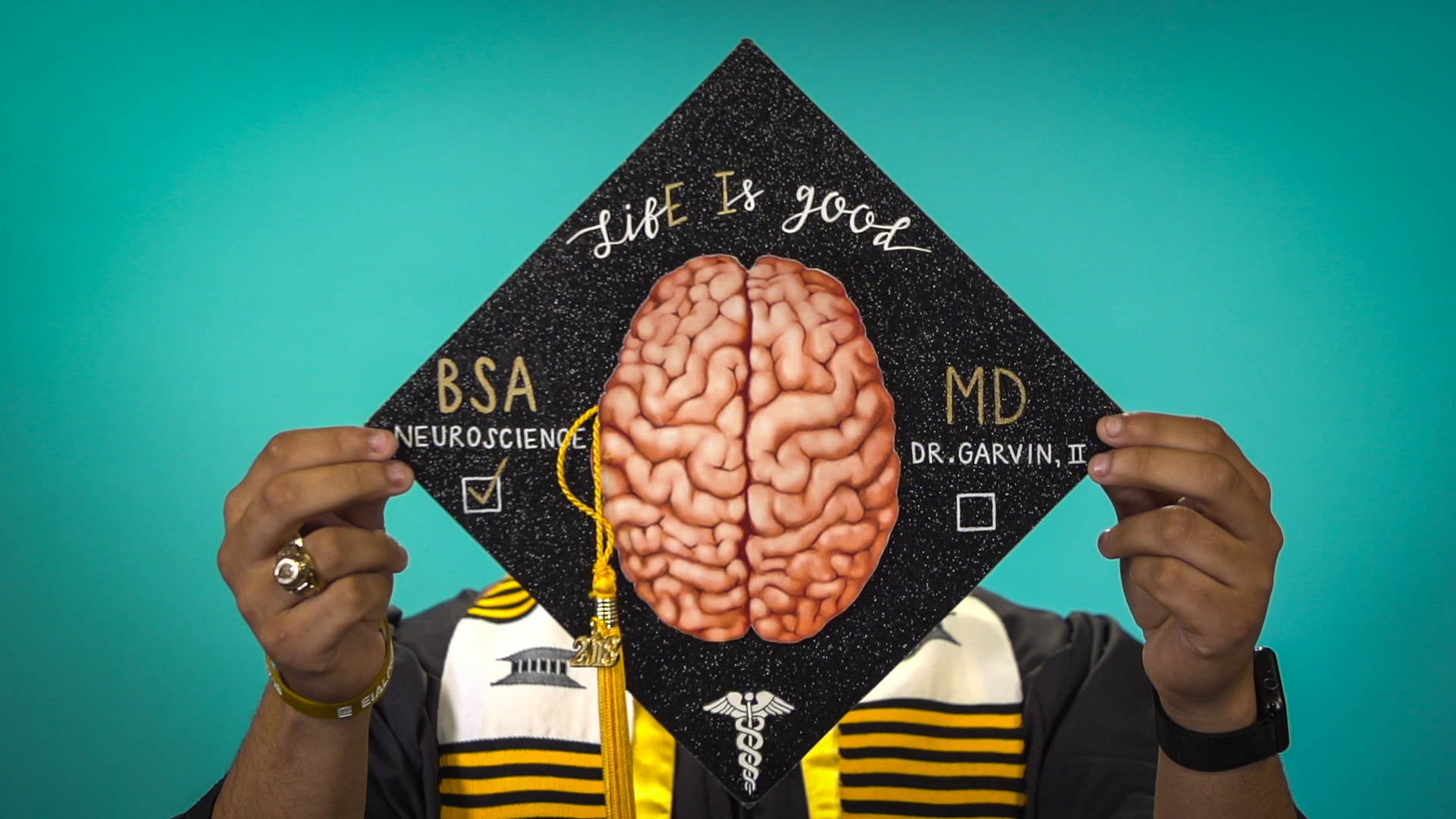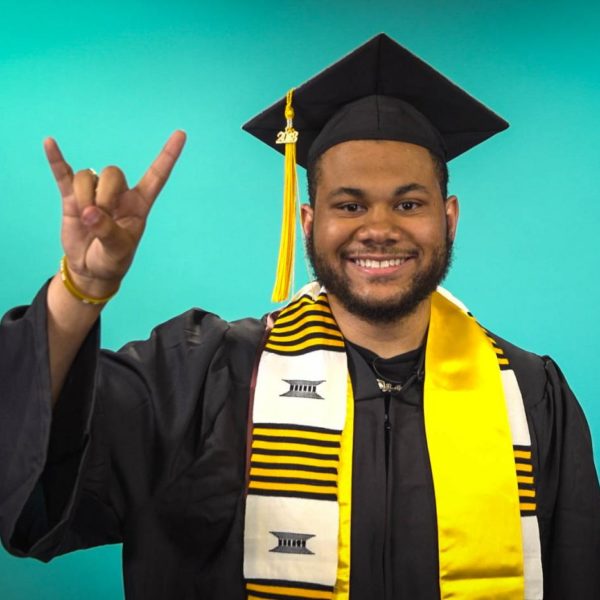As a kid, Lawrence Garvin, II loved football. His dream was to be like Vince Young and play for the Longhorns. But in high school, Garvin became fascinated by neuroscience and decided his path was to be a doctor. Garvin kept his sights on The University of Texas at Austin as his top school. He was drawn to its pre-med track and partnership with The University of Texas MD Anderson Cancer Center.
“I’m halfway through my goal of becoming a doctor right now, and UT was the best place for me to come,” he said.
Garvin is graduating this spring with a degree in neuroscience/premedical from the College of Natural Sciences. He earned full tuition from UT Austin as a participant in the national Posse Foundation program, which identifies diverse students with extraordinary academic and leadership potential. He is one of 10 students on campus to have received the scholarship in the Class of 2018.
We spoke with Garvin about the impact of college on his life and his plans after graduation.
Q. What was it like when you got to UT and stepped on campus?
Lawrence Garvin, II: My first thought was I’m here! At first it was a dream, but then reality hit. I was just taking it all in, getting my feet wet, finding myself around campus and trying to navigate it all.
College has way more to offer than you think. I thought college was just a streamlined thing. Get your degree and get out. But then when I got here, I realized this is not just a straight path. There are so many choices. There are so many different things that you can do to make your impact.
Q. What excited you most about college?
Garvin: Getting out on my own and becoming independent. Stepping away from home and taking those steps towards becoming my own man and working towards my future. The chance to really grow up in a sense.
Q. What were some challenges that helped you become who you are now? What did you learn from them?
Garvin: In the midst of the grind, during those late hours in the PCL studying, you start to wonder: “Do I really want to do this? Is there anything I can do?” But I had my friends who were having those same thoughts with me. We were supporting each other and remembering why we came in the first place.
I learned to set aside my pride and build out a team, because life is a team game.
Q. What is your favorite college memory?
Garvin: Joining my fraternity, Epsilon Iota Chapter of Alpha Phi Alpha Fraternity Incorporated. At first for a lot of students of color, it’s intimidating finding your community and finding where you fit in. A lot of time it feels like you don’t belong, but that’s not the case at all. The 4 percent is strong, and we have faculty and staff that are pushing us to be the absolute best.
Q. What’s the difference between you before you got to UT and you now?
Garvin: Going to college has definitely changed me and my perspective on life. I was really focused on myself, trying to build myself in my career, but UT helped me do a zoom-out and look at the big picture. My faith in God has grown as well. I personally believe that everything happens for a reason. I am thinking more about how I can help others and how I fit in the big scheme of it all.
Q. What are your plans after graduation?
Garvin: I am taking a gap year and applying to medical school. I will be working in a pediatric cancer research lab at MD Anderson in Houston, Texas.
Q. What other resources and support did you find on campus that helped you most?
Garvin: I was blessed to get a full scholarship. I also had the support of the University Leadership Network and my on-campus mentors that worked out of the Student Success Initiative, the Student Services Building and the MEC, as well. They helped me find mentors that looked like me and ones that brought different diverse perspectives: white, Latino, male, female, etc. This support helped make my scholarship work for me and put me in a different position for my future.

Q. How will you change the world after graduation?
Garvin: My story is far from over. When it’s all said and done, I want my legacy to be a pediatric physician who works to give back and mold the next generation of physicians and health care professionals. I want to get into a position to uplift minority students and empower them with resources and opportunities I was blessed to have access to. I’ve had a lot of different positive male leadership and positive mentors that have pushed me here, and I’m not naive to that fact.
I want to pay it forward and pull up the next generation of doctors.



